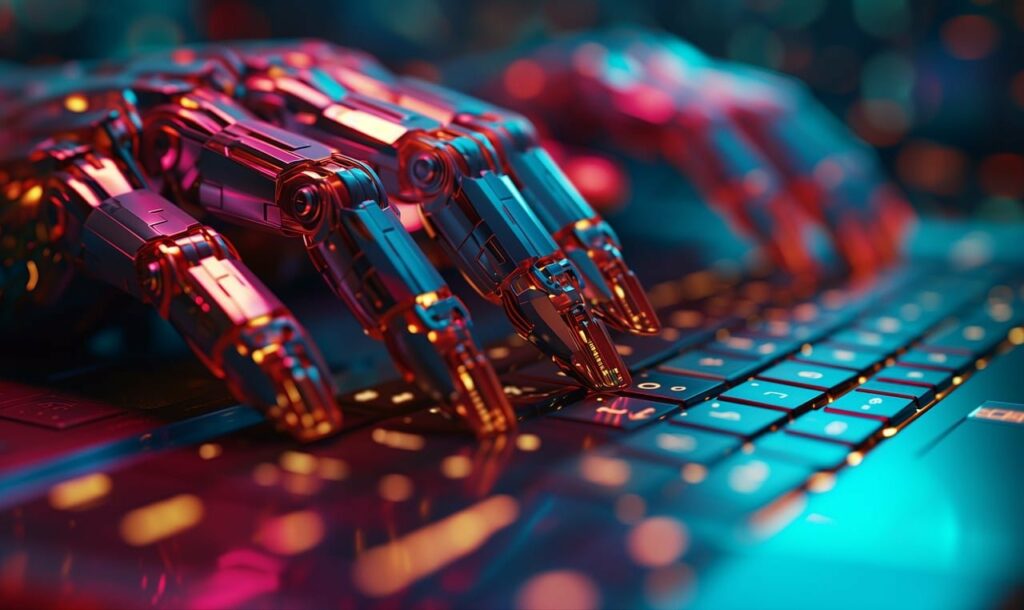The rapid emergence of artificial intelligence content has also raised a skeptical question: Are algorithms on the internet preferencing AI-generated content over human-generated content? The question is more important now to online content developers, marketers, and businesses with business in today’s dynamic web world.
Algorithmic Bias Explained
Before we can address the influence of AI on how content appears, we need to know about algorithmic bias. Algorithms are the engines that drive decision-making behind search results, social streams, and content recommendations. These engines learn from big sets of data. If the set of data employed is historically or structurally biased, then the algorithm can end up perpetuating the bias inadvertently.
On platforms like social media, this can have the effect of causing certain types of content—possibly including machine-created content—happening more than others, and even distorting perceptions in the interests of the machines’ work.
The Double-Edged Face of AI Content
AI content possesses some advantages that might make it different from algorithmic mediums:
- Optimization: AI technology handles huge amounts of data and discovers patterns, trends, and ways to engage with them—optimizing for effect.
- Consistency: AI can post on a continual basis with one voice, helping brands build familiarity and trust.
- Scalability: Contrary to human developers, AI can produce massive quantities of content at pace, making high-frequency posting possible.
These powers have the potential to create algorithmic bias, particularly if more material generated by AI has a greater chance of being clicked, shared, or commented on. But let’s clarify that algorithms literally reward success metrics, not fresh material. If content generated by AI performs better than human content in terms of engagement, it’ll be shown higher up or viewed more frequently—not because it’s computer-generated, but because it’s performing well at hitting the platform’s success metrics.
The Irreplaceable Value of Human Creativity
Though AI may be more efficient and faster, human creativity cannot be replaced in some aspects. Humans offer:
- Emotional intelligence and authentic story
- Higher-order sensitivity of social and cultural context
- New thinking that bursts out of predictable patterns
These are critical skills that AI, no matter how data-driven it is, cannot yet imitate. AI may be able to do pattern recognition and content duplication very well, but it cannot produce the intuitive sense that makes storytelling work and stick.
And anyway, true innovation is the product of thinking outside the box—something very uniquely human.
Collaboration Not Competition: Humans and AI
Rather than seeing human content and AI as competitors, it is far more advantageous to see them as partners. Strategically used, AI can enhance the creative process by:
- Offering ideas or content outlines
- Rush research
- Doing grunt work
This enables human creatives to focus more on substantial storytelling, branding, and audience connection—domains where AI is still far from capable of competing. The goal is not to automate human input, but to augment it.
The Future of Content Creation: A Hybrid Model
As AI gets smarter, systems will increasingly be part of the content creation and marketing planning process. But the human touch will be essential—especially for companies who need to build trust, create emotion, and make a lasting connection.
To succeed in this new era of content creation will be based on:
- Having an understanding of how algorithms work—and where bias can get a foothold
- Depending on AI to be more productive without sacrificing creativity
- Concentrating on content that deeply engages real people
No matter if content is produced by machines or humans, its success finally depends on how close it gets to serving, engaging, and talking with the people for whom it’s being created.
AI content is changing the digital landscape, but it’s not if or what generates content—it’s what brings together. With both AI functionality and human creativity, content producers can craft strategies that satisfy algorithmic demands without sacrificing substantive connections with people.
The future isn’t human or AI—it’s AI and human, collaborating to produce smarter, more engaging content.









